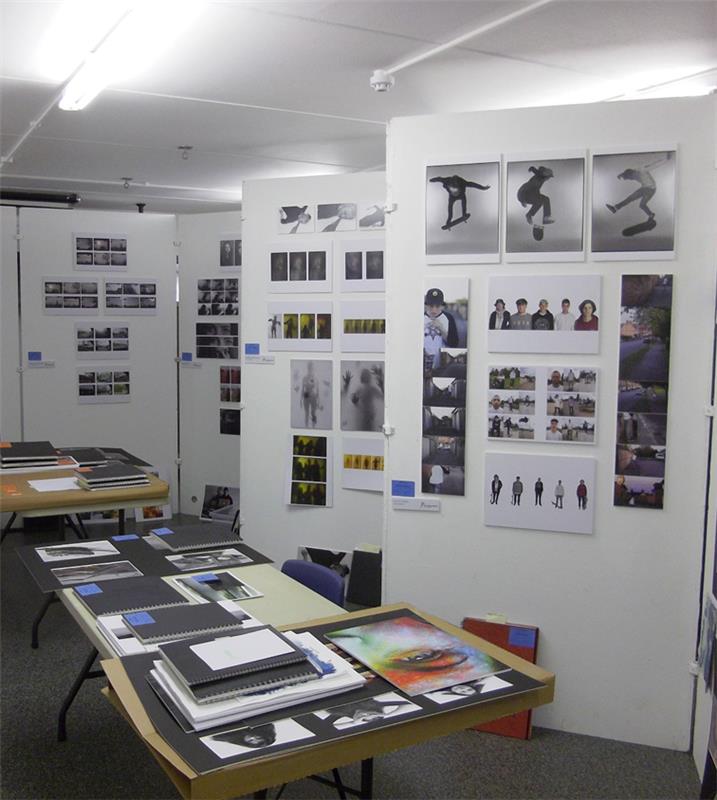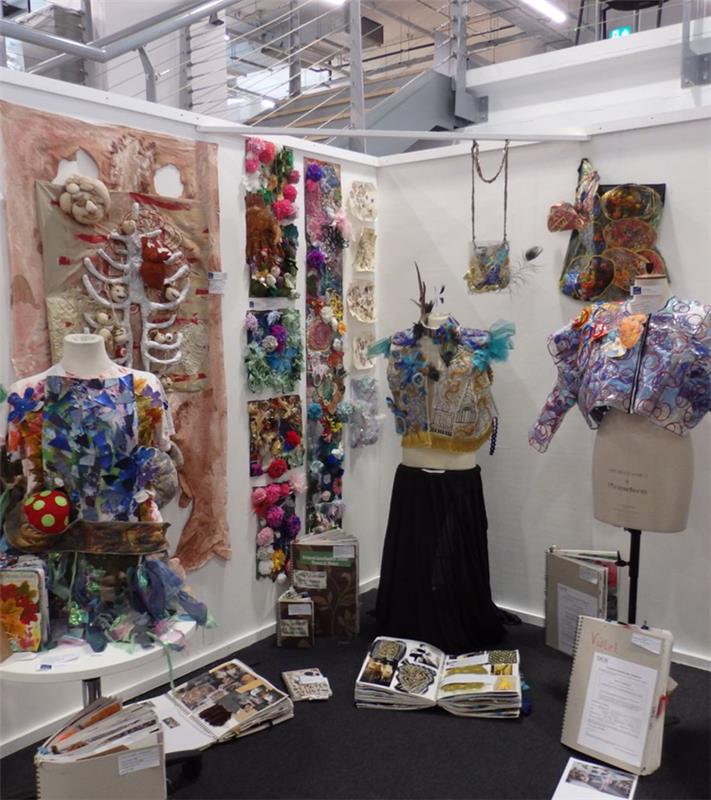Art and Design moderation - what to expect
31 May 2024
Karl Goodere-Dale, Art and Design Subject Advisor

As final marks for GCSE, AS and A Level Art and Design need to be submitted soon, schools and colleges are gearing up for their visit from an OCR moderator. To ensure you’re well-prepared, I’ll explain what you can expect before, during, and after your moderation visit.
Preparing for visiting moderation
After you’ve submitted your marks, you’ll receive a moderation sample request. Typically, this request involves fifteen students and requires displaying the entire moderation sample in rank order. Sample sizes vary based on cohort size; for detailed information, consult our administration pages.
Before the visit, complete a centre marks form for each component. You must complete this before marks submission to ensure accuracy and correct any arithmetic errors. The moderator needs a copy of this form for reference during moderation. It’s accessible on Teach Cambridge or from our forms finder page.
Before moderation day, allocate time to arrange and display the moderation samples in a suitable location where the moderator can effectively oversee the moderation process without interruptions.
On the day of the visit, make the candidate samples accessible to the moderator in a private, quiet setting. Display the work either on tables or on boards, avoiding using folders where possible.
Arrange the work by component and in rank order rather than by candidate number. Additionally, clearly identify the candidates’ final outcomes to showcase their ideas, exploration, and development.
If possible, provide a desk for the moderator to complete paperwork, and make sure they have a designated parking space if needed.

The day of the visit
When the moderator arrives for the visit, the teacher may make themselves available to walk the moderator through the work before they start. However, when the moderator begins the teacher should be available, but not present in the room during the moderation process.
If any of your students have submitted their work digitally, the moderator will need access to at least one or two digital devices to assess the submissions.
The moderator is prohibited from providing you with any feedback about the work on the day of the visit.
As part of our quality assurance protocols, moderators may occasionally be accompanied by a team leader. This is nothing to be concerned about: it’s just a normal part of the process.

After the visit
Sometimes, our team leaders and senior moderators may request some of your work to be sent to OCR. This is used for purposes such as setting grade boundaries, standardisation, and ongoing professional development.
If a moderator requires work from your school or college, they’ll provide you with the necessary packing materials and labels and will give you detailed instructions about sending the work to our warehouse by courier. In certain instances where digital work is requested, schools and colleges can upload their work using our secure online platform. All submissions must reach OCR by the first week of July.
Most of the work submitted for processing by OCR will be returned by the end of the summer series. However, a small portion of this work will be retained for the previously mentioned purposes such as setting grade boundaries, use in CPD and so on.
On results day, you will receive a report from your moderator containing feedback about the work they’ve seen. We also publish an illustrated examiners’ report which includes a summary of the moderator’s findings from the series.
In summary
- Before the moderation visit, it is essential to complete a centre marks form for each component to ensure accuracy submitting marks. The moderator will need a copy of this form for reference during moderation.
- Ahead of the moderation day, set aside time to arrange and display the moderation sample in an appropriate location for the moderator to oversee the process effectively.
- On the day, provide the candidates’ work in a quiet, private setting, displayed on tables or boards by component and in rank order, clearly indicating final outcomes. If feasible, offer a desk for the moderator and ensure they have designated parking.
- On arrival, the moderator may appreciate a walkthrough of the work. They will then compete the moderation process independently, with the teacher available, but not present. And for digitally submitted work, ensure the moderator has access to necessary devices for assessment. Remember, on the day of the visit the moderator does not provide feedback on the work.
- Occasionally, a team leader may accompany the moderator.
- Some work may be requested for OCR processing, with detailed instructions provided for shipping to the warehouse by the first week of July.
- Most processed work will be returned by the end of the summer series. A report from the moderator and an illustrated examiners’ report summarising findings will be issued on results day.
Stay connected
If you have any questions, you can email us at art&design@ocr.org.uk call us on 01223 553998 or message us on X @OCR_ArtDesign. You can also sign up to subject updates and receive email information about resources and support.
About the author
Before joining OCR in September 2019, Karl taught creative subjects in both art and design technology for 12 years. With experience with a variety of roles in secondary schools, including as a head of department, he has a wealth of knowledge and experience in teaching creative subjects at GCSE, A Level and BTEC. He has also previously worked as one of our examiners.